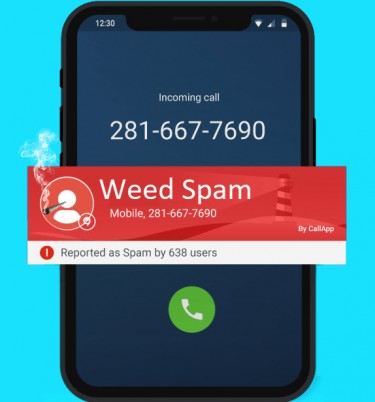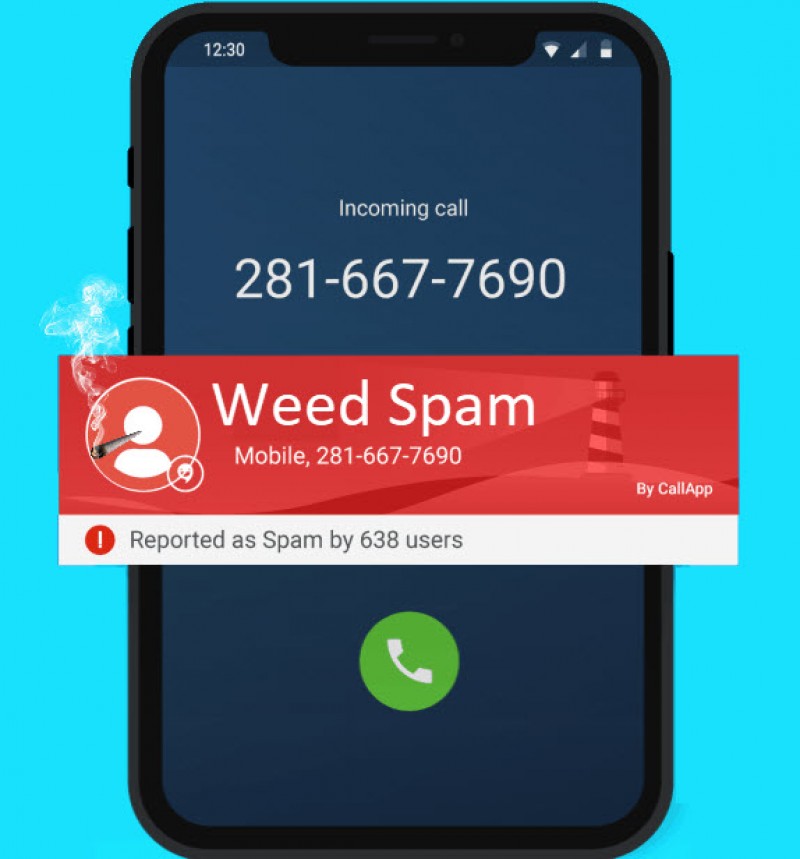Steps Cannabis Retailers Can Take To Curtail Spam Telemarketing and Avoid Legal Woes

The beauty of the present state of acceptance being enjoyed by cannabis is that the world is paying more attention. The unending works of pioneers, advocates, activists, etc haven't been in vain. The fact that the world is paying more attention means there is an opportunity to spur real change. One of the things that we hope can be changed is the scheduling of cannabis as a Schedule 1 narcotic substance. However, while that classification remains, cannabis users and entrepreneurs have to find the best way to work around current restrictions.
This is the story of advertising as it applies to cannabis retailers. Cannabis retailing is quite different from other retailing services which is why its peculiarities have to be carefully considered when thinking about advertising. With cannabis still regarded illegal federally, there are limited platforms available for cannabis retailers to communicate with their customers. Many social media platforms which are the mainstream medium of communication nowadays, have heavy restrictions on advertisement for cannabis. This has made marketing a huge problem for many cannabis retailers. It has also ensured that cannabis retailers try to make the most of every possible means of advertising that becomes available.
Telemarketing to the Rescue
In a world where restrictions occur wherever cannabis retailers turn, telemarketing seems to offer a reasonable way out. Many cannabis retailers have had to resort to the use of text messages to connect to their audiences. The use of telemarketing ensures that the customers easily get the needed info being passed out by the cannabis retailers. It also offers a good degree of efficiency because 90% of text messages are opened within minutes after they are sent. This has made telemarketing the go-to choice used by most cannabis retailers for the advertisement of their cannabis products.
Despite the fact that efficient telemarketing has been a very good resource for cannabis retailers, it can also be a source of complex legal woes for retailers. This is due to the issue of spamming which majorly becomes a nuisance to many phone users. This isn't a minor issue as it can open entrepreneurs up to a world of legal trouble. This is why cannabis retailers are using strict regulations to curtail spam messages. These regulations help to avoid complex legal issues that may arise. It also helps to open different pathways for communication that can be employed by cannabis retailers to properly get feedback from their target audience.
Regulations Involving Cannabis and Telemarketing
State cannabis marketing regulations and Cellular Telecommunications and Internet Association (CTIA) regulate the actions of cannabis retailers through telemarketing. Due to the scheduling of cannabis, they have placed different types of restrictions on what is acceptable in telemarketing and what is not. Cannabis retailers are not allowed to talk about health benefits yet to be proven by the FDA, usage methods, and cannabis sales and transactions. Apart from these bodies, cannabis telemarketing is also regulated by the Federal Communications Commission and the Telephone Consumer Protection Act (TCPA).
The regulations put in by these bodies ensure that cannabis retailers gain consent from the consumers. This consent also includes the approval of the customer for subsequent texts and subscriptions to loyalty programs and product promotions. Unfortunately, some acts by some cannabis retailers are jeopardizing these efforts and disrupting the entire process. They are buying a list of phone numbers and spamming those that haven’t granted consent with different messages. This opens such cannabis businesses to legal issues that could have been easily avoided. Fines placed by the FCC on such offenses range from $500 to $1500 for each unsolicited message. This does not include further fees for damages that can arise from the legal troubles.
Steps Cannabis Retailers are using to Curtail Spamming
Segmentation
Many cannabis firms have grown from the realm of spamming all the numbers on their directory list. Point-of-service (POS) technology can easily be used to segment the customers based on their purchasing habits and identifiable interests. Segmentation enables the cannabis retailers to know their target audience and it helps them to be more effective with telemarketing. This is because the necessary info can be sent to those that need it efficiently.
The advantages of segmentation are numerous in that the cannabis retailers know each consumer based on pre-existing info. They know who the customer is, the promotions and programs he has subscribed for, and what he might be open to. It shows that the firms appreciate their customers and value the relationship when they can taper advertisements to their individual needs.
Segmentation ensures that telemarketing feels more like communication and less like spamming. The same type of messages are not sent back to the customers and feedback determines the next type of messages to be delivered. With this method, cannabis retailers can maximize telemarketing and avoid unwanted legal issues that arise when this outlet is not properly used.
Double Consent
The idea behind double consent is to ensure that consumers certify twice that they opt-in for programs and promotional messages. They generally involve conventional means such as “reply YES” or “reply SUBSCRIBE”. This helps to conveniently streamline those that will benefit from the promotional messages from those that would not. One apparent fact that the double consent method has shown is that the ratio of those that receive the message and those that give consent is low.
Cannabis retailers also provide other means with which double consent can be achieved. Digital signatures, scanning a QR code, and the use of NFC chip are advanced ways to get consent and improve the rate of response. Customers are also allowed to opt-out of promotional plans that they have opted into at the end of all messages.
Bottom line
Significant steps to avoid spamming are important if customers are to appreciate the use of telemarketing for the advertisement of cannabis. Most retailers already seem to be walking the path needed to avoid issues.
It should be noted that cannabis retailers are still looking for better ways to market cannabis products to customers. While telemarketing seems to be the best way available currently, it could change in the not-so-distant future. But while it still yields results, it is the responsibility of retailers to make the most of what they have.
CANNABIS MARKETING AND ADVERTISING, READ MORE..
WHAT ARE SOME GOOD CANNABIS ADVERTISING PLANS?








